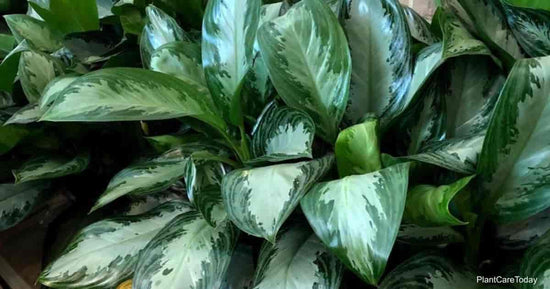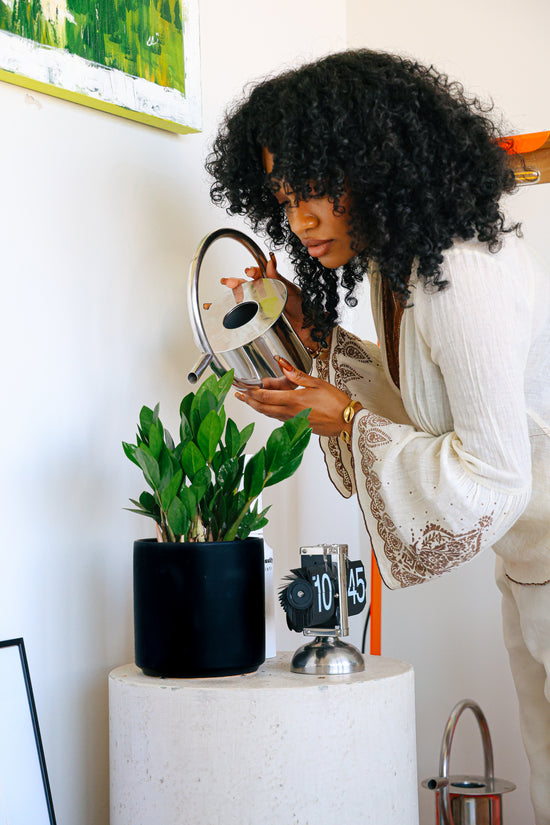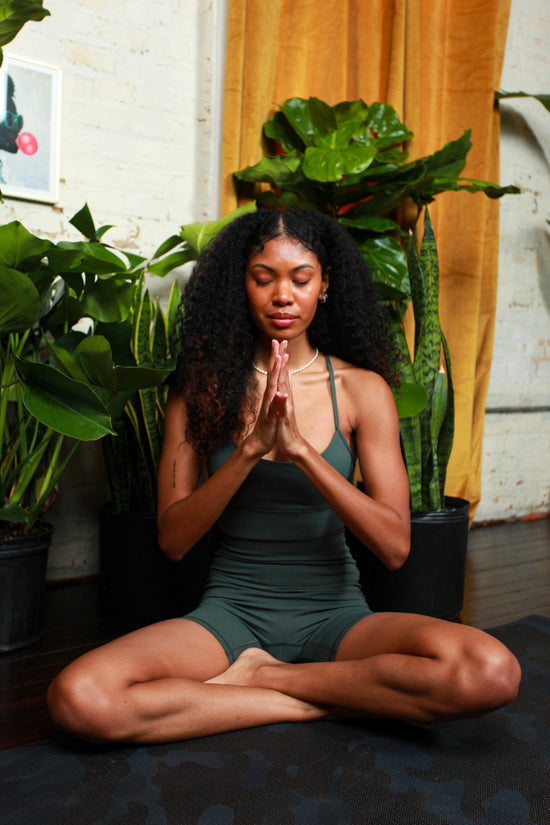If you’re reading this, you likely already feel an affinity towards plants and nature. Humans find meaningful relationships with greenery because they are living organisms that teach us about life, health, and our wellbeing. Spending quality time with ourselves and nature reveals the infinite ways that plants and humans mirror each other. We’re sharing some lessons that kickstart the lifelong connection.
We Are Adaptable And Our Needs Can Change
Though delicate, plants are incredibly adaptable. They’re able to survive drastic seasonal changes and intense climates as part of their natural life cycle. With this, their needs change throughout the year. The most notable example of this is the difference between summer and winter. During the latter, most plants rest or go entirely dormant to adjust to limited resources like sunlight and water. When caring for plants in our homes, we have to tweak our care routines to avoid seasonal mistakes, such as overwatering.
Humans, too, have shifting needs throughout the year and in our lives. We experience seasons of low energy, financial strain, and limited capacity, just as we also go through high moments of joy, abundance, and alignment. Our human necessity for rest, connection, and comfort will always deserve space alongside productivity and responsibilities. As life ebbs and flows, we can give ourselves permission to be present and assess when something is no longer serving us in the same way. We feel and function best after our needs are met, just like our green companions.
Some Sunshine Is Always a Good Idea
Speaking of needs, plants require sunlight, just like us. Light enables photosynthesis, supports energy production, pigmented leaves, and maintains a healthy appearance. Access to light also helps them clean and oxygenate the air. For us, Vitamin D builds a strong immune system, promotes bone health, and supports our mood and energy levels.
On the other hand, deficiency causes us to feel “blue”, sluggish and weakens our resistance to disease. For plants, inadequate lighting dulls leaves, restricts nutrients, and can even be the cause of demise. Next time you or your plants feel low, some brightness might lift the spirit. Keep in mind that most of our houseplants prefer indirect light, where the sun is not directly shining on their leaves for long periods.
The Difference Between Surviving and Thriving
Anyone who’s brought a plant home understands there’s a difference between the plant doing well under great care and barely hanging on due to neglect. Even the most resourceful succulents run dry from lack and stress. This is a living lesson in the difference between surviving and thriving. Under survival mode, we are simply doing our best to get by rather than actively experiencing the fullness of life.
Prolonged periods of flight/fight responses cause the body to operate under high levels of stress, limiting brain functions and impacting mood, sleep, and health. Being that we’re such adaptable creatures, recognizing this state can take time. Have you ever had a plant suffer from root rot or drought? The root system experiences invisible stress beneath the soil before you can identify signs of its decline. Plants have their own way of managing resources while dependent on external care. Likewise, there are tools for regulating our nervous system, such as meditation, expression, movement, and body scans that can mitigate the physiological impacts of stress, revealing what we need to make more space for.
Plant-Human Connection Affirmations
- When change feels uncomfortable, I remember that I’m an adaptable being
- I cannot thrive in a space that’s not meant for me
- I recognize when my growth is being stunted
- Blemishes are a natural work of life, experience, and age
- I envision what my mind + body feel like under peace and stability
- I take responsibility for my wellbeing and accept support from my community
-
When I take care of myself, I’m better able to take care of those around me
- I prioritize my health, joy, and energy
Through our relationships with the natural world around us, we can better learn how to care for ourselves and other living beings. We’re grateful to be part of a global community of humans who feel connected to plants. Share your favorite lessons and revelations with us! Comment below, DM us, or tag us in your stories!
Sources:
https://www.healthline.com/health/food-nutrition/benefits-vitamin-d
https://www.health.harvard.edu/staying-healthy/understanding-the-stress-response





